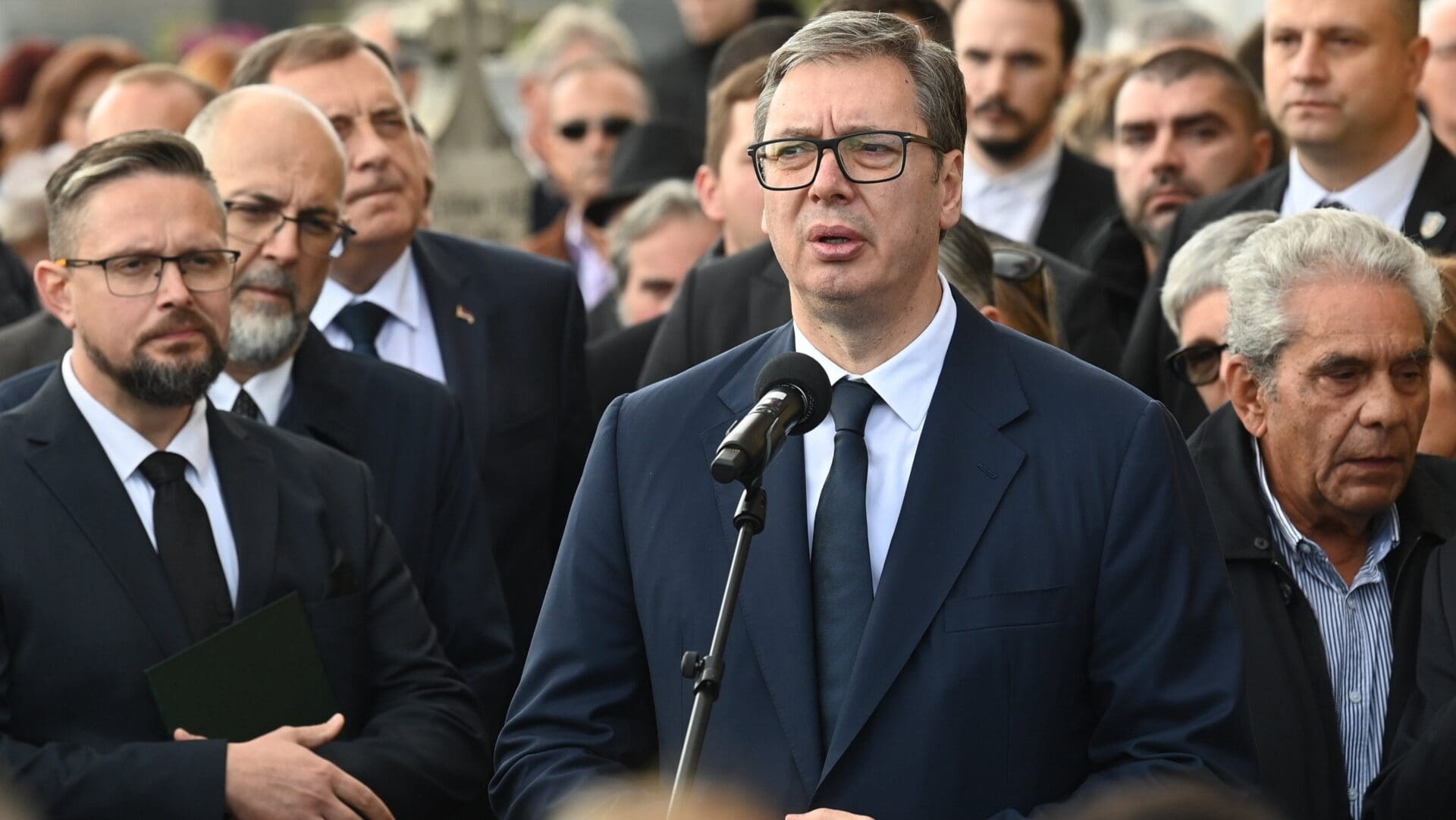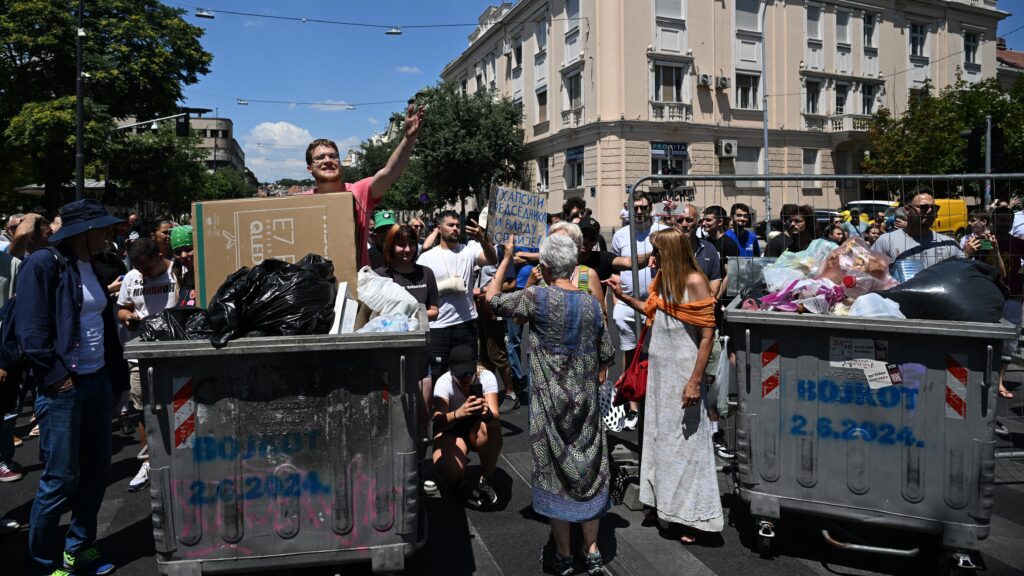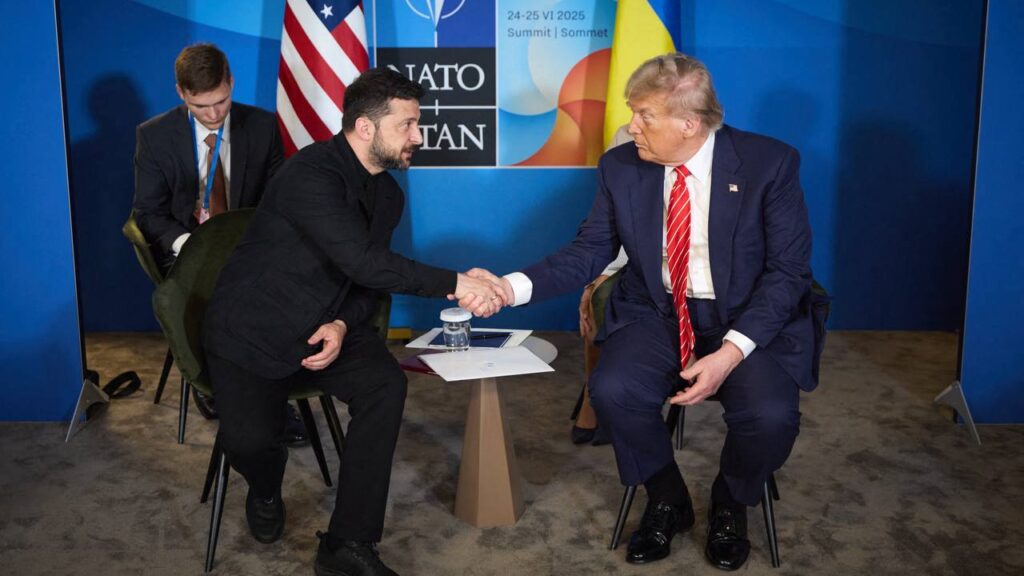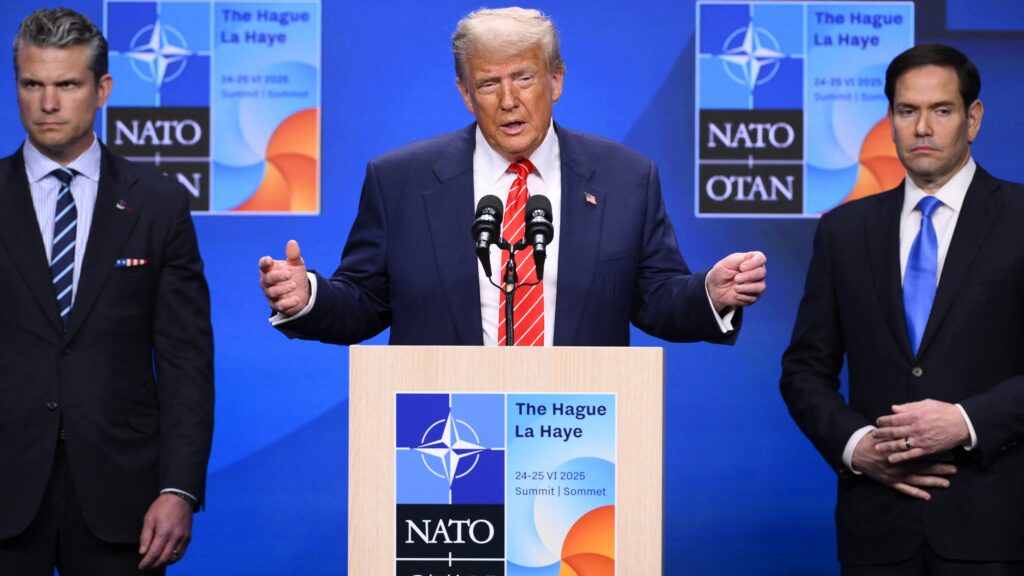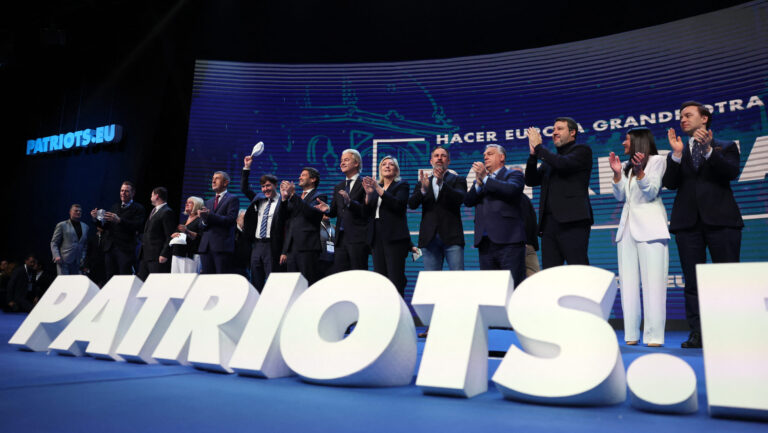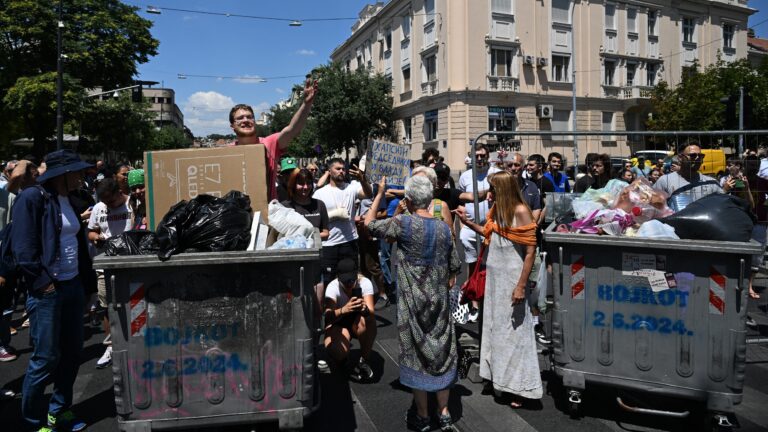Aleksandar Vučić has a particular flair for the unexpected.
Take, for example, the following statement he made to Euronews at the 2020 World Economic Forum: ‘To tell you the truth, I’m fed up of being lectured and told by all the others about our cooperation with China, Russia, and then I see all the others meeting Xi Jingping and Putin even more often than I do. Do your job. You are sovereign states. Serbia is a sovereign state,’ he said to the apparently genuine dismay of the journalist sitting in front of him, at what was billed as one of the most important meetings of the globalist elite.
Serbia’s 1.98-metre-tall president, who is fondly labelled by his political opponents as the Balkan country’s ‘illiberal’ and ‘authoritarian’ ‘strongman’, seems not to care at all what the outside world thinks of him. Although he is committed to the EU integration of his country, Vučić has, on the surface at least, maintained very cordial relations with Russia and China. While the countries of the European Union are bickering about the sanctions to be imposed on Russia, Vučić is quick to assure Moscow that Serbia will not take its share of them.
But it seems that the external circumstances are not leaving Aleksandar Vučić completely cold. On Wednesday, Vučić signed a decree dissolving the Serbian parliament, the Narodna skupština, and the country will hold early elections in mid-December—
just a year and a half after Serbs last went to the polls.
Does that sound unexpected? Well, from Vučić’s perspective, it seems just reasonable.
The Radical (and Violent) Shift in Serbia’s Politics
Vučić’s party, the Serbian Progressive Party (SNS), has dominated Serbian politics since 2012. In elections, the SNS typically runs as part of a ‘big tent’ party alliance, which includes a number of smaller parties. In the 2014 and 2016 parliamentary elections, both of which were held ahead of schedule at the SNS’s initiative, the party scored slightly below 50 per cent. The 2020 elections were boycotted by a large part of the opposition, citing what they saw as unfair conditions, but they have re-joined the 2022 elections, which were also called early and held under new electoral rules. The SNS alliance won this election too, but with a worse result than before. However, the Serbian Socialist Party (SPS), the Democratic Alliance of Croats in Vojvodina (DSHV) and the Alliance of Vojvodina Hungarians (VMSZ), which had been participating in the previous cabinet or externally supporting it, still secured the required majority in the skupština, so there was no change of government.
But the political scene has changed dramatically. Although Serbia is not really an urbanized country by European standards, the urban-rural divide is evident in Serbian politics, too: in rural regions, with the exception of the autonomous region of Vojvodina, the parties of the SNS alliance are the most popular, but in the capital city of Belgrade, the majority of voters are oppositional. Belgrade, a city of 1.6 million people, has a great potential for mobilization, which opposition parties have skilfully exploited in recent years:
mass demonstrations against Vučić and the government have been a regular feature in the capital in recent years,
organized on a wide variety of issues, all of them very inconvenient for the government.
In the spring of 2023, a terrible wave of violence swept across Serbia. On 3 May, a student started shooting at a primary school in Belgrade. A day later, two shootings took place near the capital, both committed by a 20-year-old young man. Although gun ownership is widespread in Serbia, for historical reasons alone, such incidents are rare.
The events have caused a general outcry in the country. Although the government was quick to state that it would radically change its gun policy and collect weapons that were often illegally held by the population, only the opposition was really able to capitalize on the events. Since then, the opposition grouping Serbia Against Violence has been organising regular mass demonstrations in Belgrade and other cities, and the parties involved—including Srce (The Heart), linked to former presidential challenger Zdravko Ponoš and former Belgrade mayor Dragan Đilas’s Freedom and Justice Party—agreed in October to run together in the next municipal elections in Belgrade and in the parliamentary elections.
The deterioration of public security is also noticeable in other areas of Serbia. In the northern border region of the country, which is largely populated by Hungarians, crowds of illegal migrants have been congested because they cannot cross the fence separating Serbia and Hungary.
Violent clashes between rival groups and between border guards and migrants are becoming increasingly frequent,
often accompanied by gunfire.
Vučić’s International Troubles
Moreover, gun violence is far from the only issue that has caused serious problems in Serbia in recent months. Clashes between Serbs and Kosovars have also resurfaced in recent months, with a return to a series of minor and major crises between Belgrade and Pristina since the summer of 2022, most recently in late September, when an ambush on police officers in the Serb-majority northern part of the disputed country caused stir. A large Serbian force was then deployed on the Serbia–Kosovo border on Vučić’s orders, threatening to escalate the conflict militarily for a time. The Serbian president finally ordered a withdrawal under US pressure.
While the incident was certainly a good distraction for Vučić from the Serbia Against Violence protests, it did not improve the president’s international image. The Kosovo question remains the dominant issue in Serbian domestic politics and Vučić, who began his political career on the Serbian far-right under Slobodan Milošević, cannot publicly back down on it. But this would be inevitable in some form if Aleksandar Vučić wants to keep one of his most important promises:
to take Serbia into the European Union.
So, from Aleksandar Vučić’s point of view, calling early elections—which the opposition has been demanding for some time—does not seem like a bad idea. A good showing in the elections scheduled for 17 December could temporarily offset the problems outlined above and the government coalition’s unpopularity in the capital. The SNS alliance currently holds a comfortable lead in opinion polls, although its support is significantly below its 2022 election result.
The Drama of VMSZ
However, the early election does not come at the right time for everyone. The largest Hungarian party in Serbia, the aforementioned Alliance of Vojvodina Hungarians, recently suffered a great loss: its leader, István Pásztor, passed away on 30 October. Pásztor had led the VMSZ since 2007 and had also been president of the Vojvodina Provincial Parliament since 2012. He played an important role in the spectacular improvement of relations between Serbia and Hungary in recent years. Under István Pásztor’s leadership, the VMSZ also built close cooperation with the Vučić coalition: although the party did not participate in the work of the previous cabinets, it supported them as an external force.
In the last election, the VMSZ won five seats in the skupština, a slightly weaker result than in the previous elections. The party can hope that its good relations with Fidesz and the SNS will help it to maintain its position in the December elections, in which VMSZ will be contested under the leadership of Bálint Pásztor, son of the late István Pásztor.
The outcome of the Serbian election is, of course, not indifferent for Hungary.
Official relations between the two countries have improved a lot in the last decade. In international politics, sincere friendships are a rarity, and of course there are countless interests that make it worthwhile for Budapest and Belgrade to maintain good relations. Hungary has long been committed to supporting Serbia’s accession to the EU, but given the protracted migration and energy crises, it is also in Budapest’s vital interest to have a stable Belgrade government that is friendly towards Hungary and Hungarians. The SNS alliance has shown a strong willingness to maintain good relations, which is a promising sign for the future.
Given the current power rankings, it would be very difficult to squander the SNS’s lead, but it is questionable whether the Vučić alliance, which has weakened in the polls, and the Socialists will be able to gather enough seats in the skupština to continue governing from December without the need for additional coalition partners.
Related articles:

